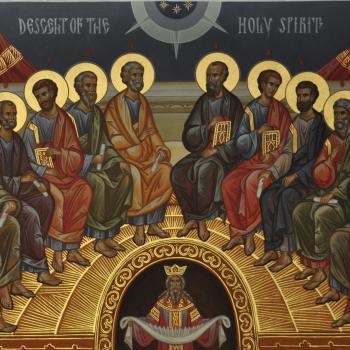3) Young People
Sixteen-year-old singing sensation, Justin Bieber, was recently asked by Rolling Stone for his position on abortion: "I really don't believe in abortion," he said, since abortion is "like killing a baby." Bieber is not alone. The sea of young faces at this year's annual "March for Life" in Washington prompted NARAL (National Abortion Rights Action League) President Nancy Keenan to worry: "There are so many of them, and they are so young."
Bieber, ironically enough, was castigated by Barbara Walters for answering questions inappropriate for a person of his age -- even though girls can actually receive abortions, and not merely opine on them, at ages younger than 16. That a veteran journalist like Walters fails to see the inconsistency in her position is a testament to how entrenched are the ideas among the older generation of abortion advocates.
4) The Third Wave
John Ensor of Heartbeat International writes: "In the first wave, Catholics took the lead is declaring the inherent evil of abortion. Evangelicals then flooded in to help advance the pregnancy help movement. The Third Wave points to the victory of our movement and the downfall of abortion as a business, when Black and Hispanic Christians not only join this movement, but lead it."
A few months ago, a billboard in New York City featured a picture of an African-American girl with the message "The most dangerous place for an African-American is in the womb." Many found the ad "racist" and thought it condemned black women for having abortions. Lost in the controversy was the actual point of the advertisement: abortion clinics target poor minorities in the inner city. Although the billboard was taken down, it pointed to the troubling racial history of abortion. When YouTube videos began making the rounds, showing the overtly racist agenda of Planned Parenthood founder Margaret Sanger, some pro-choice advocates were forced to reconsider their assumptions.
5) Abortion Advocates on the Defensive
While Roe still stands, legislators in numerous states have begun chipping away at the implications of that decision. Supporting their efforts is increasing evidence of corruption at abortion clinics.
Planned Parenthood's advocates have sought to redirect the discussion by pointing to all the other health care services their clinics provide for low-income women. But implicit in Planned Parenthood's downplaying of abortion and emphasizing of other services is a stunning admission: abortion is a problem. Planned Parenthood's talking points indicate that fewer and fewer Americans can stomach the idea of "abortion as health care."
And then there is the admission that abortion is a "tragic choice." On a recent episode of The View, Whoopi Goldberg explained her reason for being pro-choice: the low-income woman who already has too many children. When confronted about women who simply get abortions out of convenience, she called them "idiots." Why does Whoopi have such a visceral reaction to abortion-for-convenience? Because she's an inconsistent advocate of abortion rights: she recognizes that the fetus is a human being and that abortion snuffs out this life. The fact that she (and others like her) sees abortion as a "tragic choice" implicitly speaks to the immorality of the procedure.
Conclusion
The tipping point in favor of the pro-life cause is not evident to all. Time magazine recently chose Planned Parenthood president Cecile Richards for their 100 Most Influential List (a decision akin to choosing segregationist George Wallace over crusader Martin Luther King, Jr.). There is much work to be done.
The abortion debate will not go away. The fundamental issue at stake is not reproductive freedom but the desire to extend human rights to all -- even the smallest and most vulnerable human beings among us. Those who continue to ignore or deny the humanity of the unborn are increasingly on the defensive because new technologies are opening the window into the womb. What we find there are not tissues to be discarded, but human lives worth protecting.





